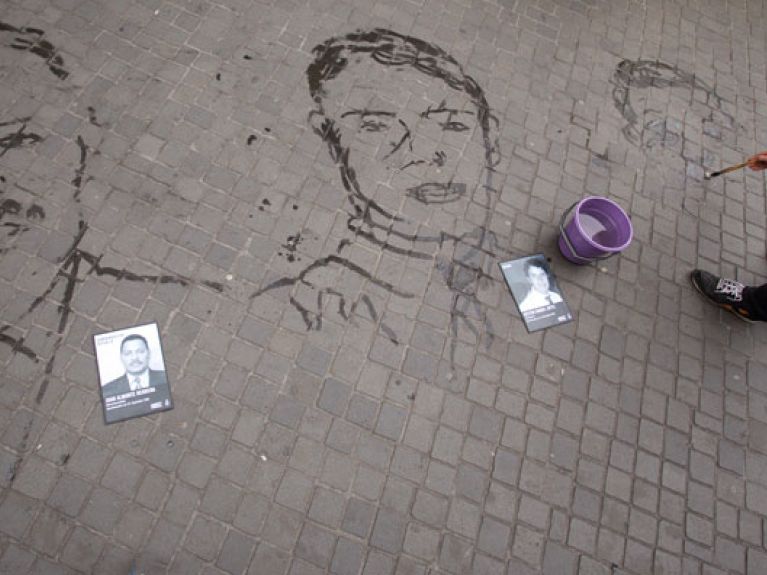International Day of the Victims of Enforced Disappearance
In more than 80 countries in recent years people have disappeared with the knowledge of the state. A short interview with Roksolana Bayko, an expert on international law at Amnesty International in Germany.

Mrs Bayko, a workgroup of the United Nations has documented more than 50,000 cases of “enforced disappearances” and handed the material over to the governments of 88 countries. With what sort of crime do we have to do here?
The so-called “enforced disappearance” of people is a particularly cruel form of state despotism. Governmental or quasi-governmental groups seize people. This is denied before the public. Relations and fiends of the disappeared often don’t know where to find the abducted and whether they are still alive.
The International Day of the Victims of Enforced Disappearance reminds us of the fate of the victims of kidnapping and of the grief of their relatives. It also makes a political statement. According to the UN convention, not only the disappeared person is recognised as a victim of enforced disappearance, but also every person who has been harmed by the crime. It hits close family members particularly hard when because of the uncertainty about the fate of the disappeared they can’t find peace.
In Germany people don’t disappear with the knowledge of the government. Why is it nevertheless so important that Germany should oppose this crime?
Sanctions against enforced disappearance are an important contribution to the fight against torture, since victims of enforced disappearance are regularly tortured. In Germany the issue gains its relevance primarily because of investigations carried on in accordance with the principle of universal jurisdiction: persons responsible who are residing in Germany must be pursued and prosecuted by German law enforcement agencies. A current example is the case of the German doctor Hartmut Hopp, who as a member of the settlement Colonia Dignidad in Chile was allegedly involved in the enforced disappearance and torture of numerous dissidents during the Pincohet dictatorship. He is being investigated by the Krefeld District Attorney’s Office.
What are Amnesty International’s demands?
Under the current legislation a comprehensive prosecution of perpetrators isn’t possible in Germany. For one thing the period of limitation is too short; for another a prosecution of perpetrators from abroad who reside in Germany is bound by too restrictive conditions. Full implementation of the convention is possible only if enforced disappearance is made a separate statutory offence. This has also been recommended by the UN Committee on Enforced Disappearance.
The International Day of the Victims of Enforced Disappearance, 30 August 2015

